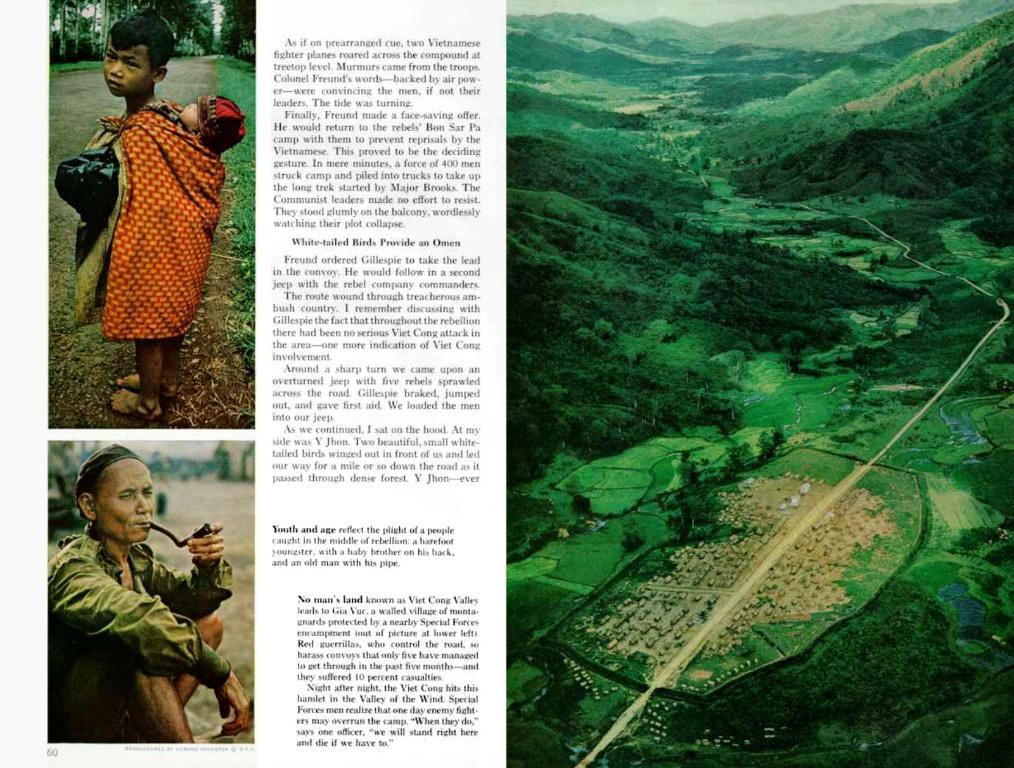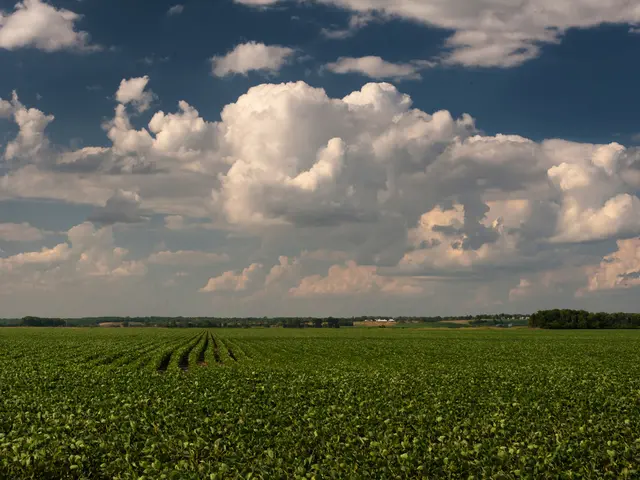Thailand deemed low-risk for deforestation-free trade by EU
Great news for Thai exporters! Thailand has been officially categorized as a "Low Risk" nation under the European Union’s Deforestation-free Regulation (EUDR). This designation makes it easier for Thai agricultural goods to be sold in European Union (EU) markets.
Minister of Agriculture and Cooperatives, Narumon Pinyosinwat, confirmed that this classification indicates that Thailand adheres to EU standards that require exports to be devoid of deforestation and produced in compliance with legal obligations regarding land use, labor, and human rights.
The EUDR affects commodities like coffee, cocoa, palm oil, soybeans, rubber, and timber. Since Thailand has been assigned the low-risk classification, there's a reduced likelihood that these exports are linked with deforestation or illegal land use[1]. The European Commission appointed Thailand to the list of countries with minimal risk of contributing to forest loss through agricultural production.
In preparation for the regulation, the Ministry of Agriculture and Cooperatives has collaborated with the EU to help farmers and agribusinesses upgrade their practices to meet traceability and sustainability standards, both through public outreach and technical support[2].
With this designation, Thai exporters expect to encounter less bureaucracy and red tape when penetrating EU markets. The reduced compliance burden will bolster trade in key products impacted by the regulation, enriching Thai agriculture's competitiveness in Europe.
More on Thai Agriculture
- PM visits Chanthaburi, meets fruit growers to address agricultural challenges
- Chinese village restores agricultural soil with organic content
- Government reports 3% growth in Thai agricultural economy in Q1 2025
Sources
- European Union’s Deforestation-free Regulation (EUDR)
- Press Release by the Ministry of Agriculture and Cooperatives
- Thai PBS News
- The Bangkok Post
Enrichment Insights
The "Low Risk" designation inherently benefits Thai exporters by:
- Simplified Documentation and Compliance: Thai exporters will face less onerous documentation and traceability requirements than exporters from countries classified as Standard-Risk or High-Risk, resulting in reduced administrative burdens and costs[1].
- Enhanced Competitiveness: The low-risk classification positions Thailand favorably in the EU market for products such as coffee, cocoa, palm oil, soybeans, rubber, and timber. This may lead to increased market share and competitiveness for Thai agricultural exports[5].
- Regulatory Alignment: Thailand's compliance with EU standards on deforestation, land use, labor, and human rights is reinforced, ensuring alignment with EU regulations, fostering trust and stability in trade relations with the EU[5].
The benefits for Thailand include:
- Increased Trade Opportunities: With reduced regulatory hurdles, Thai exporters can more easily access or broaden their presence in the EU market, potentially leading to increased trade volumes[5].
- Improved Sustainability Practices: The designation encourages Thai producers to maintain high standards of traceability and sustainability, resulting in better environmental outcomes and an enhanced reputation for Thai agricultural products[5].
- Economic Benefits: By removing compliance costs and facilitating smoother trade flows, Thailand can expect economic benefits from increased exports and reinforced market access[5].
- Thailand's low-risk status under the European Union's Deforestation-free Regulation (EUDR) is anticipated to promote the competitiveness of Thai agriculture in the European Union (EU) market.
- With the simplified documentation and compliance that accompanies the low-risk designation, Thai exporters could potentially benefit from increased market share for key export products like coffee, cocoa, palm oil, soybeans, rubber, and timber.
- The ongoing collaboration between the Ministry of Agriculture and Cooperatives and the EU to help farmers and agribusinesses upgrade their practices in line with traceability and sustainability standards will further enrich Thailand's agricultural competitiveness in Europe.




